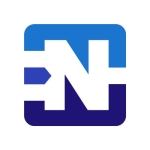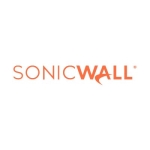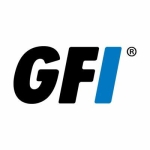What is our primary use case?
I'm using the solution mainly for its firewall application and to prevent intrusion in the system. The XG platform is very powerful from the perspective of identification and to prevent potential attacks on the system due to its the capacity to predict and to anticipate the potential damage on the system.
It's integrated inside the system, meaning that it can control all the endpoints in the system and talk with them and identify any potential situation. It can also isolate one area inside the system without compromising the entire system. This allows you to isolate the initial problem without involving the entire infrastructure.
You have real-time control of all your infrastructure. It is integrated with the hardware and offers good performance alongside the hardware and by the firmware, and these work together to control the entire infrastructure.
What is most valuable?
The real-time control on offer is excellent.
We really appreciate that you can segment and quarantine certain sections of your system without having to shut down the entire operation.
The product has artificial intelligence that has the capability to quickly identify which could be the potential risk mainly for intrusions like ransomware or a new kind of typology of attacks that are in place right now.
The idea is to mainly prevent the condition and not to manage the situation, as, if that happens, in many ways, it's already too late. It's to identify the condition that can help the company to prevent or mainly to reduce the risk of an intrusion. In that sense, its performance is excellent.
The product is doing it job without affecting the system with a heavy load. The activity on offer is very light in terms of resources that are required by the system. It does not require a lot of resources in terms of memory, et cetera. There is no performance impact on the system. The customer doesn't detect its presence on the system when it's working, and yet they still get all of the great benefits of protection.
The solution has been quite stable.
It's a product that is in continuous improvement and is following what the customer is asking. They are taking inputs and designing new releases specifically according to the client and their needs.
It's one of the best products on the market as it really understands where the market is moving and iterates based on the future. It's constantly improving. It does a great job at keeping confidentiality while guaranteeing security.
The solution doesn't just offer theoretical security, it really does offer very good, real-time security and delivers on its promise to the client.
What needs improvement?
There is no specific features request right now really. I see that all the features that Sophos is implementing and is proposing on the market follow exactly what the market is asking. It's difficult to identify something that is missing compared with what the market can ask as one of the most important things that Sophos does is have the capability to anticipate in a certain way what the market expects. As a leader on the market, they tend to have the solution just before the market is asking them for it.
The solution could offer a bit more integration with other systems, with other platforms - just to be able to extend the capability and to interface with other kinds of platforms or systems that I can find on the market as it gives the possibility to improve the level of integration.
What do I think about the stability of the solution?
The solution is very stable. There are no bugs or glitches. It doesn't crash or freeze. It's very reliable.
Buyer's Guide
Sophos XG
December 2025
Learn what your peers think about Sophos XG. Get advice and tips from experienced pros sharing their opinions. Updated: December 2025.
880,315 professionals have used our research since 2012.
What do I think about the scalability of the solution?
The solution is quite scalable. You have to consider that all Sophos products are scalable. This is one of the main characteristics of the system. It means that you can start with a base solution that is very simple and improve this step by step without losing what you have done in the past. It's scalable in the sense that you have a different layout that you can cover, however, you don't have to dismiss what you have done in the past. You have just to integrate. In this way, if you consider the cost of implementation for the company, it has the possibility to optimize the cost because the company has the possibility to appreciate the system initially, and then improve the system step by step without losing what has been done in the past.
This means the company has the possibility to distribute the cost if you're in a certain period of growth. Normally some companies start to say, "I want to guarantee to control to the outside with a certificate and give the possibility to access my data in a controlled way. After that, I want to extend the security on the email that is managed by the company. I want to encrypt the data on the server and so on." All these features can be approached in a step-by-step manner instead of all at once, and you can implement them on the system in different ways and at different times.
We normally have about 50 users and around five technicians.
Which solution did I use previously and why did I switch?
I also currently use Cisco products alongside Sophos.
However, we did not previously use a solution that was different from Sophos.
How was the initial setup?
The initial setup is not so complicated. The system is not complicated to understand and also in can be installed without a very high level of expertise. Of course, if you have this kind of expertise, you can obtain from the system the maximum performance that the system can do, however, it means that you are not obliged to be a guru to be able to use these kinds of products. You can use these kinds of products just as an IT manager inside the company without having or needing special knowledge.
Otherwise, you can leave to Sophos with the capability of doing something like a close box. You are sure that Sophos is able to guarantee the level of security that you are expecting. You can have it be automatic, or you can choose to go more manual in its operations. For example, if you were a professional photographer, you'd probably like a manual experience, as it would allow you more leeway with your craft, and if you were an amateur, you 'ld likely prefer an automatic camera that handles the heavy lifting for you. Sophos, in that sense, is the same. If you want, you can configure single parameters, or you can leave it to Sophos to give you something out-of-the-box.
In any case, if you stay on the automatic configuration, you are guaranteed that the system can provide the correct level of service that you want. It means that it's not required to have an expert. That said, you need of course to have a minimum level of knowledge, as it's clear that you need to know what you are managing. Starting from that, you can obtain what you need without moving into an advanced configuration.
Typically, a configuration takes about half a day or so, if you go that route. It doesn't take long, as those who would handle it would know what they are doing.
What about the implementation team?
We handled the implementation ourselves, in-house. We did not need the assistance of an implementor or consultant. I have enough knowledge on the solution to manage it myself.
What other advice do I have?
I'm mainly a user. Sometimes I handle installations.
I'm using the latest version of the solution. I don't have the version number on-hand.
We do plan on continuing to use the solution. I've been quite please with it overall.
I would recommend the solution to others. It's worked quite well so far and really leads the market.
I would rate the solution at a ten out of ten.
Which deployment model are you using for this solution?
On-premises
Disclosure: My company does not have a business relationship with this vendor other than being a customer.


















